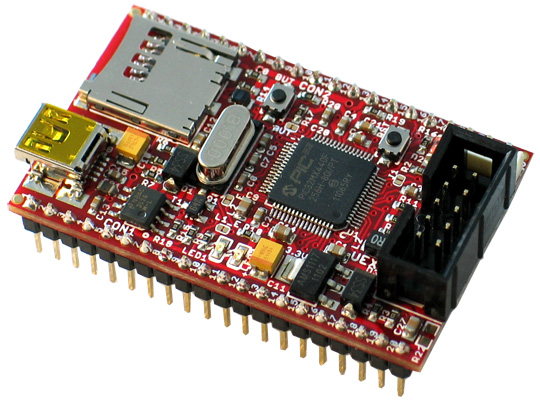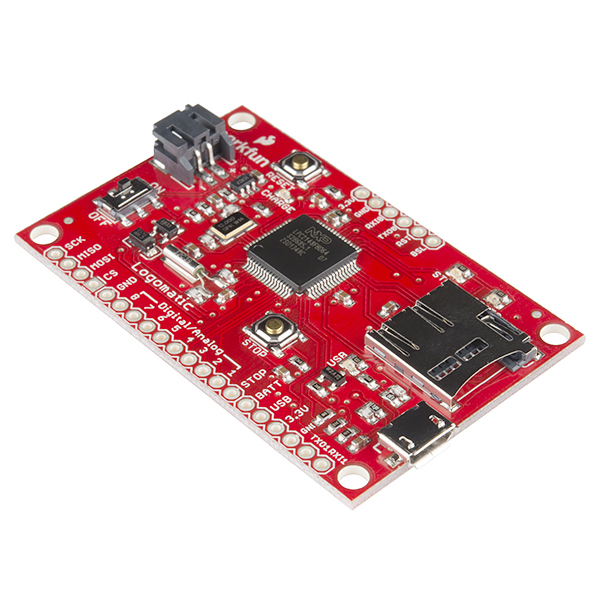In my search for a small, powerful, and inexpensive data logger I came across a few interesting development boards.
PIC32-PINGUINO-MICRO
This Maple-like board features a
Microchip PIC32MX440F256H 80 Mhz microcontroller and a 16-channel 10bit ADC (only 11 channels are available on this board). It can sample at 1MSPS and can perform conversions in sleep and idle modes. The price is very reasonable too at 12.95 EUR (<$18USD). The UEXT connector allows you to add
Olimex modules for a wide variety of peripherals and interfaces. Modules are available for
interface,
adapters,
sensors,
LCD,
IO,
video,
RF.
RFID,
Ethernet,
time,
GPS,
MP3 and
Biofeedback.
FEZ Domino was on this list because of the price and small size but it has now been discontinued.
ADI part number EVAL-ADXL345Z-DB ($59.00) This datalogger isn't as powerful with only a 40+MHz
ARM7-based ADuC7024 MCU, but has a lot of features. The MCU itself has a multichannel, 12bit, 1 MSPS ADC, voltage reference, temperature sensor, voltage comparator, up to 4 DACs, power supply monitor, PLA and 3-phase 16bit PWM generator. The board can be powered by two AAA batteries, and includes a
3-axis accelerometer, the ADXL345. The development environment for the sample code requires a evaluation version of the compiler, but there are GNU tools available for the processor.
One of sparkfun's more popular products, the Logomatic V2 has a simple design and fewer features than the rest and is a little more expensive ($59.95). It uses the 60MHz NXP LPC2148 ARM7 and you can find a lot of open source code examples on the net. The board comes with the
main logging firmware on Github, and
SparkFun's USB bootloader, you can modify the source of either project using free
WinARM GNU tools. Jean-Sebastien Stozel developed a few projects to extend the firmware including
a generic C++ multitasking framework using FreeRTOS.









